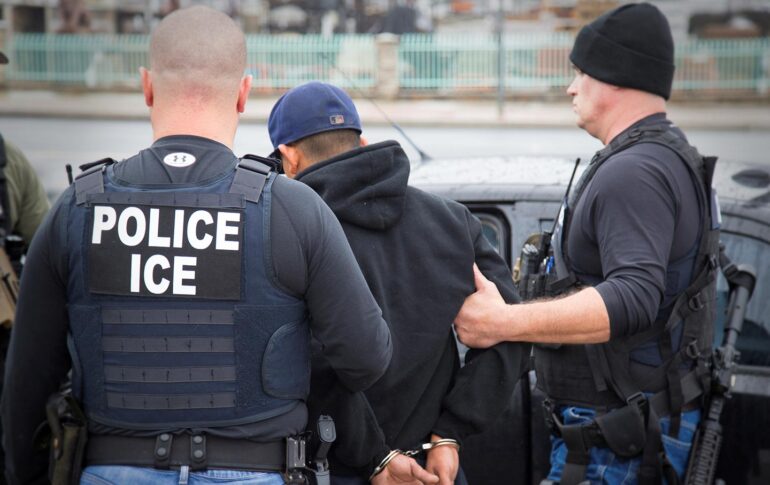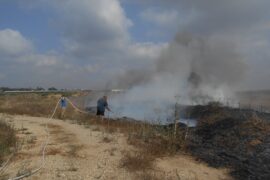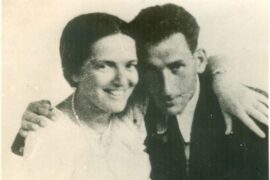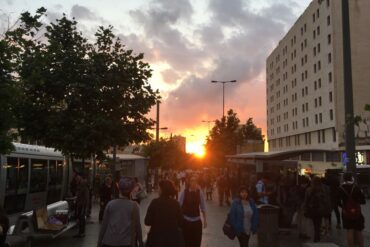As the new year begins, a time of introspection occurs. I reflect on the last year, on my personal life and growth, within the context of Jewish history and also the world around me. This is a time when we must examine what is flawed within ourselves, our nation, and the world, and commit ourselves to improving on all three levels.
There are many issues that make this a critical moment in history. One of the most important for Jews in the United States, though, is the global refugee crisis. It is estimated that there are currently 258 million migrants worldwide, and 26 million refugees and asylum seekers. These numbers are unprecedented and will continue to grow as climate change-induced floods and droughts, as well as imperialist wars displace millions more.
With more people than ever living in strange lands, I recall a time when we, too, were strangers in a strange land. We were forced to go down to Egypt as economic migrants, fleeing from famine in our land. Each year on Passover we recall our brutal experience as slaves in Egypt, and the Torah reminds us countless times to internalize this experience. We must never oppress a foreigner, because we remember being foreigners (Sh’mot 22:20, 23:9; D’varim 10:9, 27:9).
Moreover, we have spent the past 2,000 years of our history as migrants, fleeing violence and oppression throughout the Diaspora. We remember being forced to flee from the Spanish Inquisition, the Crusades, and the pogroms. And the only reason most Ashkenazi Jews are even in America to begin with is because we were forced to flee brutal anti-Semitic violence in Europe.
While it is inspiring to see many Jews standing up for im/migrants and refugees, I am deeply pained to still see so many of my people turn a blind eye to the suffering, or even attempt to justify it. Ignoring the pain and oppression of foreign born peoples is counter to the teachings of our Torah and ignores our own history. Im/migrants are direct targets of vicious and violent attacks by imperialists intent on blaming systemic economic issues on foreigners to divert our attention. And the conditions they face are worse than ever in the United States. There are now 12,800 migrant children in detention centers, five times more than there were last year (not due to a spike in migration but because of a reduction in the number released to live with families or sponsors).
This year we must deepen this solidarity and defend im/migrants from any and all attacks, xenophobia, and scapegoating they face because we have been the subjects of the same attacks. We know all too well what it is like to be refused entry. We will never forget the millions of Jews refused entry by the United States, left to die in the gas chambers, or the harsh British restrictions on Jewish immigration to British-occupied Palestine.
The role anti-Semitism has played in maintaining oppressive systems of power is very similar to that of anti-im/migrant oppression. Jews and foreigners have been the scapegoat for the ills of society for too long. Our oppressors are used to dividing the oppressed and turning us against each other to prevent rebellion. As the cries of rightist nationalists and Nazi sympathizers against the “invasion” and “infestation” of im/migrants are amplified by power hungry demagogues, intent on maintaining the current hegemonic and oppressive capitalist paradigm, the stories of blood libels and pogroms ring in my ears.
I understand the hesitation of many Jews to compare our history to that of other oppressed groups. I do. The fear of co-opting and erasing our history is painful. It is true that no people is currently being gassed to death by the tens of thousands every single day as we were in the Shoah. But it is our nature to learn from our experience, as we did in Egypt. We protect and prevent others from the brutality we have faced. Even if the brutality doesn’t reach the same depths. This is what never again means.
As stories of families being torn apart by ICE fill the news, I remember the searing pain of my grandparents’ generation, the survivors who remember their lost family members. The children sent alone to foreign lands who never saw their families again. While it is important to point out the ways in which our oppression and history are unique, it is also critical that we emphasize how they relate to that of other groups. We are meant to recognize similar mistreatment and build deep solidarity. We must demand and defend the right to freedom for all people.
This year we must commit ourselves to standing with im/migrants and all oppressed peoples, and unite against the systems that oppress us all.
Oseh Shalom bim’heira b’yamenu (May we create Peace speedily in our days)






Wow- Jeremy. Thank you so much for writing this- for publicizing your opinion and articulating it so beautifully. Kol Hakavod. Gmar Chatima Tovah